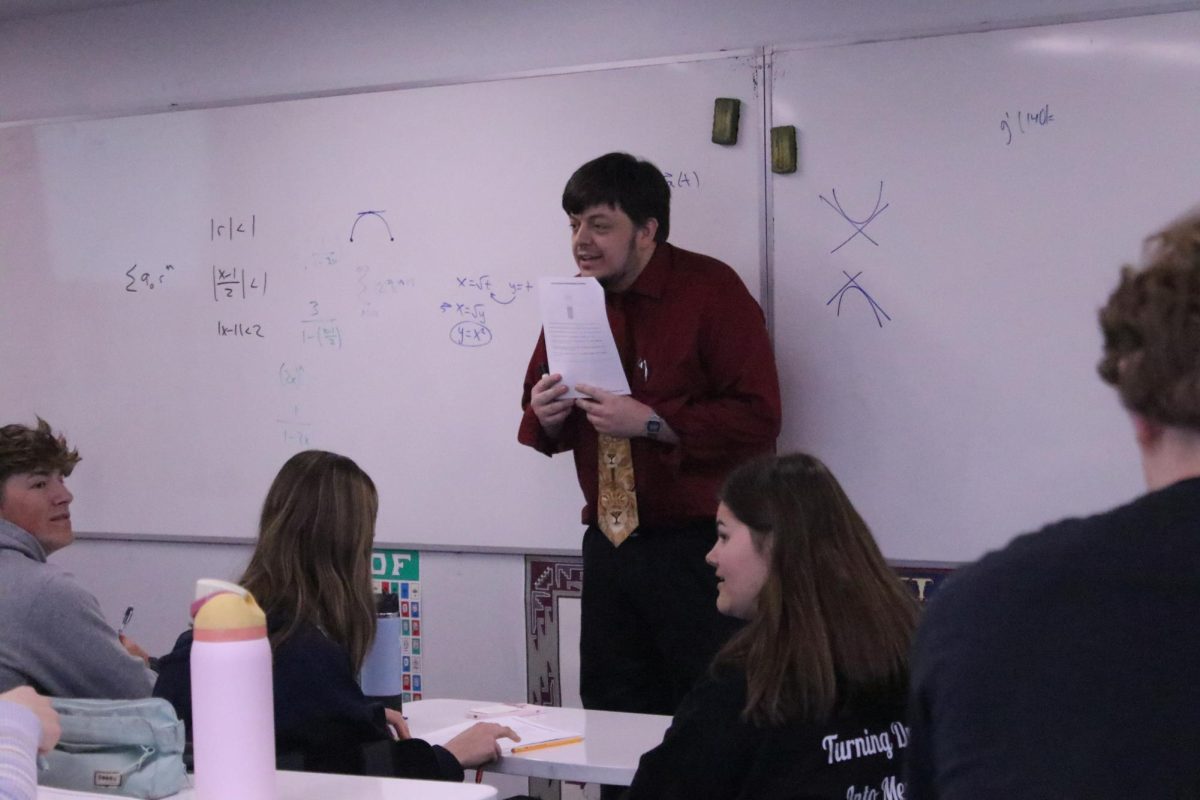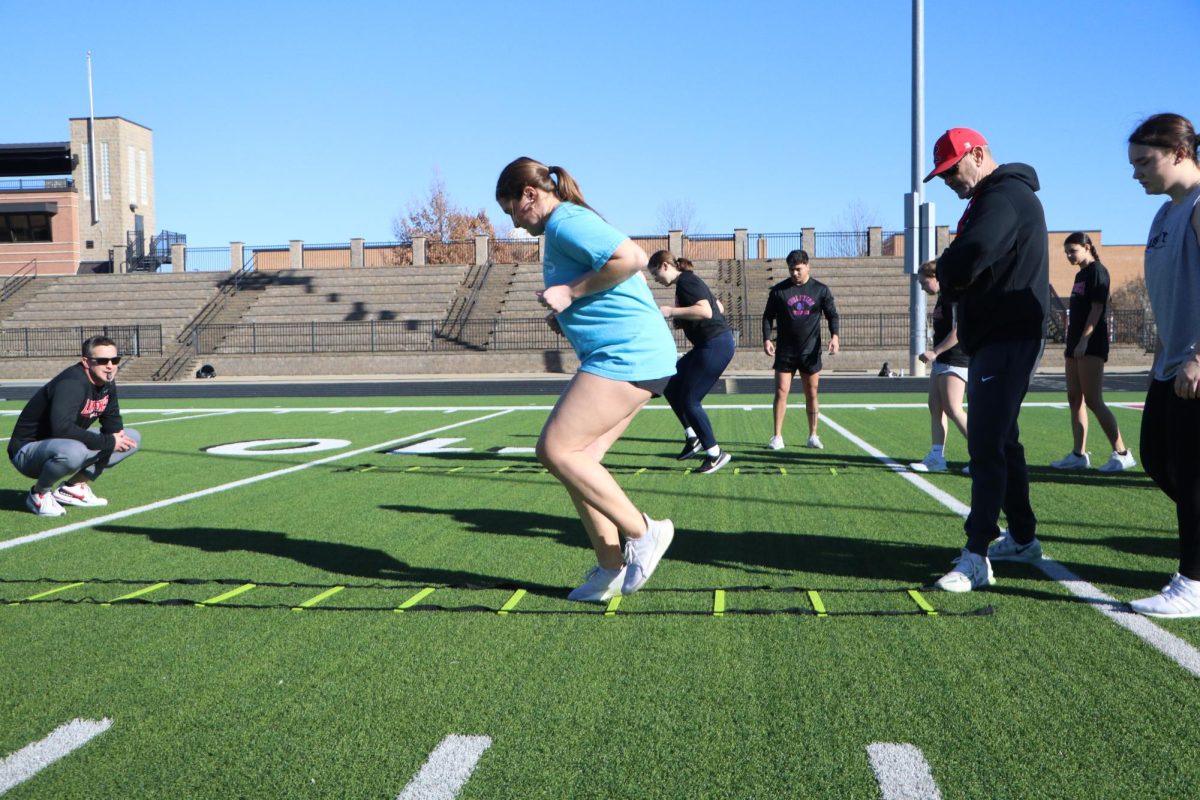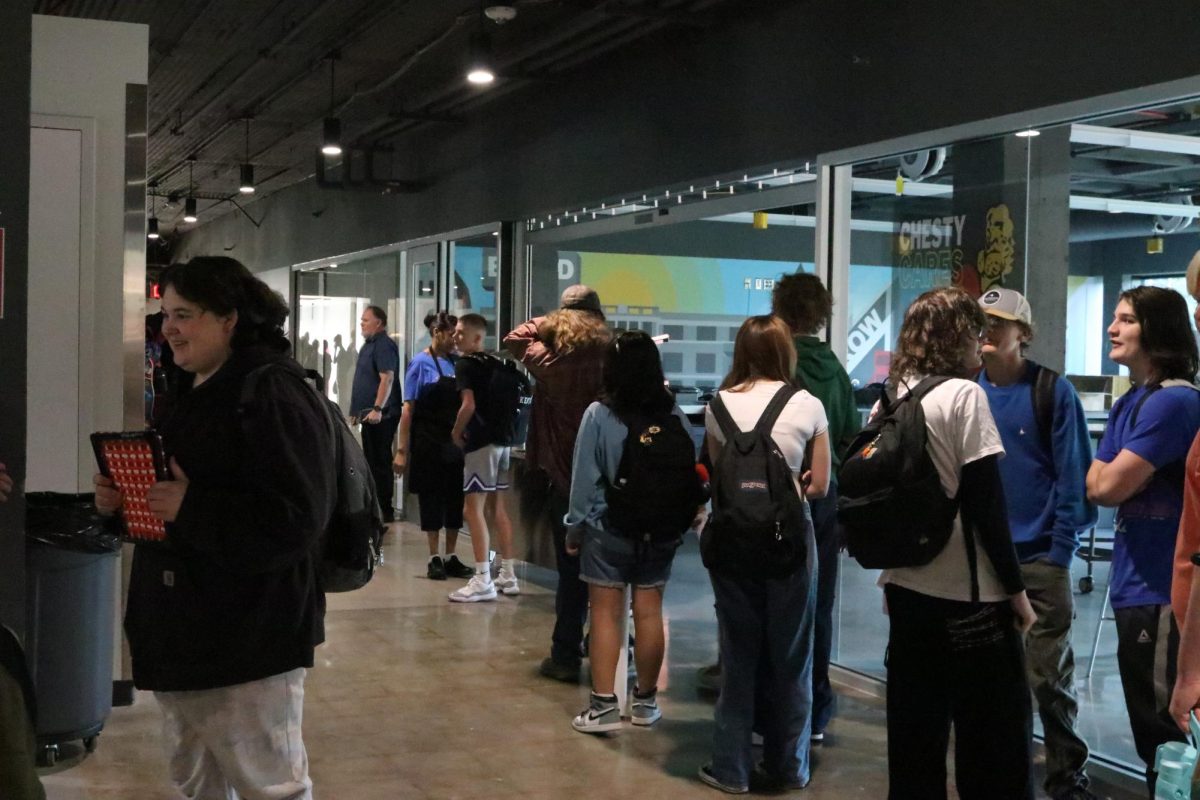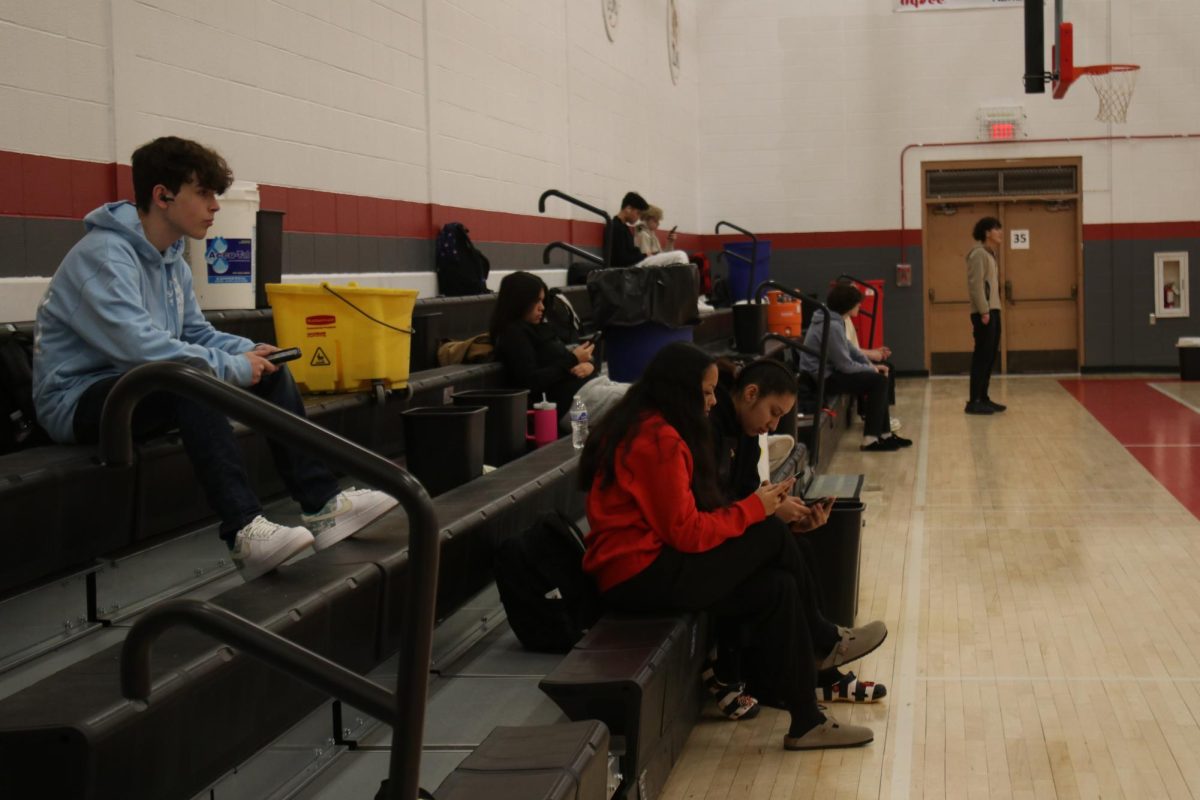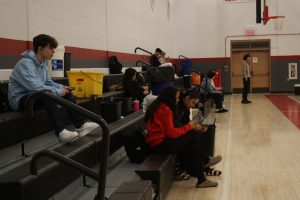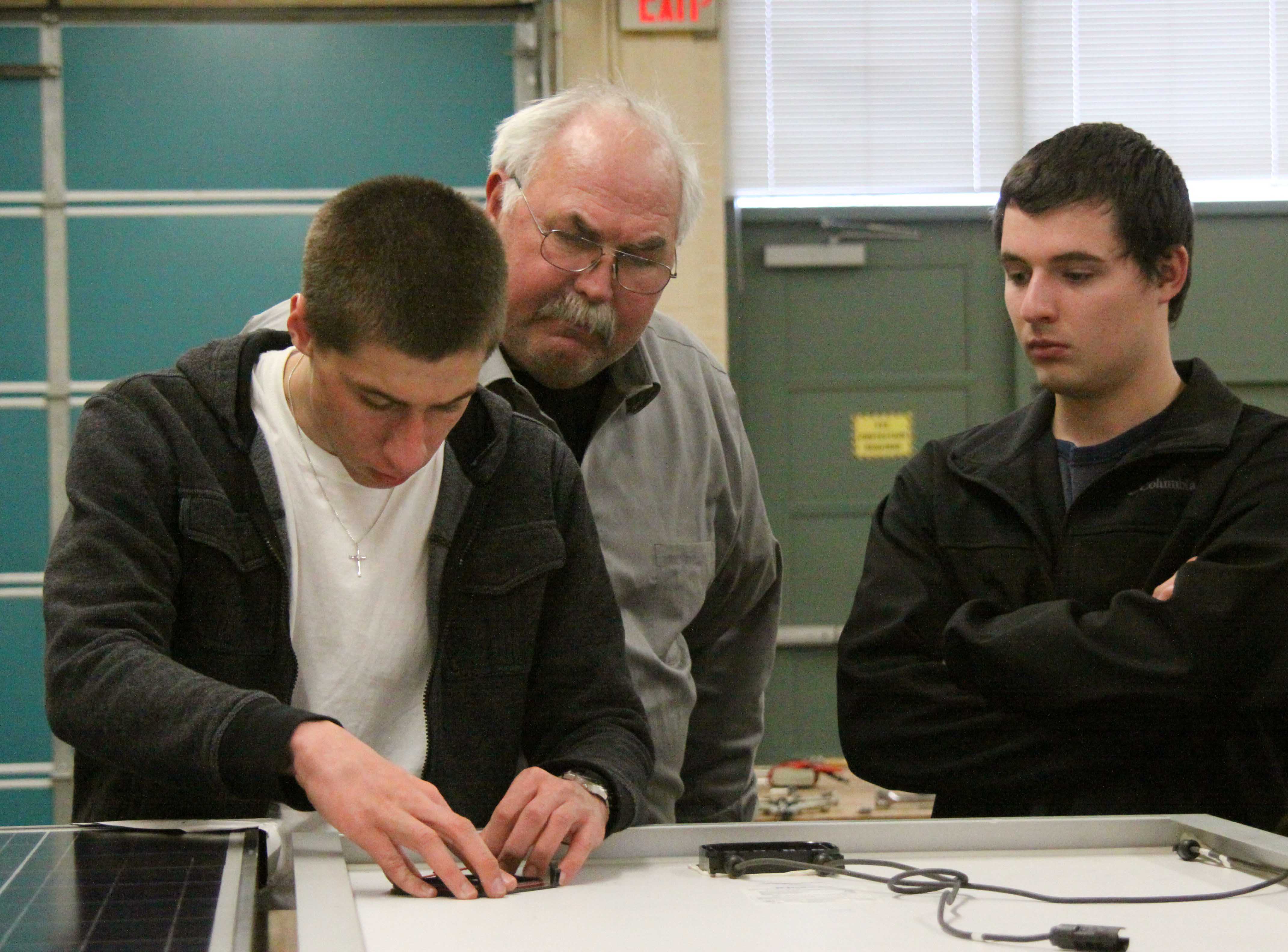
Photo by Courtney cooper
Due to recent Kansas legislation, students have the opportunity this semester to take classes in solar and electromechanical technology.
Taking effect last summer, Senate Bill 155 also allowed LHS students to take CNA certification classes.
Career and technical education programs have since expanded, as this semester marks the inaugural offering of the Johnson County Community College (JCCC) classes Electromechanical Systems and Solar Electric Systems at Lawrence High School.
“We are currently offering two classes at LHS, which are part of our Electrical Technology Program,” JCCC professor Charlie Randazzo said. “Electromechanical Systems covers electrical theory principles, electrical components and meters. A hot topic in today’s world is the production of clean energy. We are also offering a class in Solar Electric Systems, which covers the theory, installation and operation of Solar Photovoltaic Systems.”
The classes are taught at a collegiate level by current JCCC professors and are open not only to high school students, but also JCCC students, community members and working professionals.
“Except for the location being familiar to the high school student, the tone and scope of work varies little if any from that offered on campus at any college or university,” professor Dan Eberle said. “We have students in these classes that are from 17 to nearly 60 years old. High school students, college students, practicing electricians, business owners and community members… the more diverse class population allows more diverse questions and solutions to problems.”
Early experience and exposure to the rigors of higher education, as well as the opportunity to take the classes tuition free, served to entice participating students.
“One of the big advantage of taking these classes specifically [is that] they are covered by Kansas Senate Bill 155, which authorizes the state to pay tuition for high school students to attend some college level classes,” Eberle said.
“The most rewarding part is that it’s free college credit,” said senior Victor Torres, a student enrolled in both classes. “Saving that much money is really good.”
Students also enrolled to gain valuable knowledge and skills they plan to use in future careers.
“I think the solar systems class is pretty interesting, and I think I’ll use a lot of the stuff I learn in the electromechanical systems class,” senior William Harnar said. “I want to go into mechanical engineering. I can use all the stuff I learn in the class.”
At the end of the semester, students who have successfully completed the solar systems class will be in a position to take and pass an exam allowing for solar panel installation certification.
“If a student takes both of these classes, by the end of the semester they will be certified to do solar panel installation,” engineering teacher Charlie Lauts said. “They can then work for companies and get a job. It’s not like flipping burgers for $7.50 an hour. It’s a skilled labor. They can make $12, $15 or even $20 an hour because not many people know how to do it. Hopefully, their summer job can be a really well-paying job.”
In addition to becoming certified skill laborers, students benefit from these classes in other ways as well.
“One of the greatest advantages of students taking college level courses while still in high school is that they get a jumpstart on their college degree,” Randazzo said. “Taking this course is a great way to increase your resume marketability once you start your job search. These classes can be applied toward a career as an electrician installer, power plant technician or an electrical engineer.
Though these classes offer many advantages, challenges exist as well.
“The hardest part is that it takes up three hours four times a week,” Harnar said. “It takes away a lot of time after school.”
For students, time commitment may be the largest disadvantage. The professors teaching the class, however, explain students are missing out on the experience of being in a university setting.
“The biggest disadvantage to teaching high school students at their high school is the student missing the interaction and work environment that is available at the college institution,” Randazzo said.
Students agree, but say the benefits outweigh the time commitments and believe taking these classes will pay off in the long run.
“There is more homework, but I think it will be worth it,” Harnar said.



